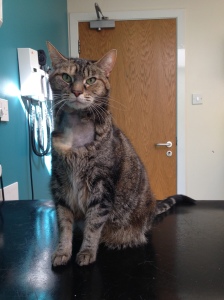Food fads and “miracle” supplements. Even our Victorian-era ancestors fell prey to these marketing gimmicks (click here for some fun adverts). Back then it was whole grain cereals and cure-all liniments that would fix what ails you; now it is gluten-free/paleo/vegan diets and coconut oil that have the marketing companies and self-proclaimed nutrition gurus in a frenzy to separate you from your hard-earned money. They are not just targeting you, but your furry, four-legged companions, too.
But is there a place where nutrition science and marketing converge to improve health and wellness? The answer is a resounding … maybe. But before we get into specifics, let’s take a look at the industry as a whole.
A Background on Dietary SupplementsThe supplement industry is Big Business and growing each year. Thanks to the 1994 Dietary Supplement Health Education Act (DSHEA for short) supplement companies have almost as much pre-marketing oversight as they did in 1894, but at least now the FDA can step in (after the fact) if there is a problem. For human supplements that is. Veterinary supplements are not covered by DSHEA and are still considered “animal feed.” As the FDA states “the ultimate responsibility for the production of safe and effective animal feed products lies with the manufacturers and distributors of the products” (to read the original document look here). Not a great comfort knowing that the companies that stand to profit from selling a given product are the same ones responsible for regulating safety and efficacy.
It can be hard, even for me, to keep all the brands and product straight and I still come across new ones all the time. To help me evaluate these new supplements as I see them, I’ve come up with a list of product and company questions that I ask each time.
General Questions on Dietary Supplements- How much of each nutrient is in the supplement? I want actual nutrient or compound concentrations in milligrams (mg) or grams (g) here. If I call the supplement provider and ask for specific concentrations of vitamins and minerals and they send me an ingredient list, they may not understand the role of nutrients in health and disease. I’ve even talked to “scientific advisers” who couldn’t understand why I would need to know how much calcium, zinc, iodine, etc., is in the product the company recommends as a supplement to balance home-prepared diets. (The short answer is that I need to know how much to add to meet the dogs daily requirement.) Telling me the ingredients are “all-natural” doesn’t mean anything if it’s naturally deficient in zinc and iron, or has naturally toxic levels of vitamin D.
- Is it being used to fill a deficiency or manage a condition? Today’s commercial pet foods are intended to provide all essential nutrients your dog or cat needs, but individual animals may have higher requirements for things like essential fatty acids or fiber than what the diet alone provides. Certain non-essential nutrients, such as long-chain omega-3 fatty acids, may also help animals with chronic medical conditions. Know what you are using and why.
- Who makes the supplement? Is it a company that makes both human and veterinary supplements? Or only pet products? Maybe this is a faulty assumption, but I can’t imagine that companies manufacturing both human and pet products use two different sets of quality and safety standards. Not to imply that vet-only products are necessarily lower quality. Many are made by private label human supplement companies, or are members of the National Animal Supplement Council (NASC), or are both. The point is, I would encourage veterinarians and caregivers to know who manufacturers and oversees the supplements they use.
- What else is in the supplement? Supplement (for pets or people) do not require pre-market approval, so it is important for veterinarians and caregivers to be in the habit of scanning the ingredient list to look for potentially problematic or harmful ingredients.

What I think about when I hear people spout off about the unproven “benefits” of certain supplements. Repeating marketing catchphrases is not a valid scientific argument.
- NO garlic for dogs or cats. Garlic contains a compound that damages red blood cells causing the cells to rupture and animal to develop anemia. Even if you don’t believe that garlic is a problem for dogs (though the science show us that it is) everyone should know that garlic is toxic to cats. If you see a supplement marketed for dogs and cats that included garlic (which I have), put it back on the shelf and walk away. If they don’t know what’s toxic to their intended users, what else don’t they know?
- Please don’t feed coconut oil to your cats. Coconut oil seems to be the pet health food trend de jour. Claims I’ve read on coconut oil marketing materials: cures skin disease and allergies, eliminates bad breath, elevates metabolism (whatever that means), prevents diabetes, allows your dog to telepathically communicate with you (ok, I made that last one up). It is marketed as a panacea and miracle cure for pets. Coconut oil may have some helpful uses in dogs, though it is not what the coconut oil panderers want you to believe (more on coconut oil for dogs in my next post), but I would not recommend it for cats. They really don’t seem to like it. Yes, I know that there are weird cats out there that love bananas and strawberry jam (I have one), but feeding coconut oil to cats can cause food refusal and an aversion to the diet. I would be highly skeptical of any person or product company that told you to do so.
Dietary supplements can play a valuable role in health and wellness for your pets or your patients, but just like any other treatment though, we need to make sure that what we are doing is safe and effective.

We want to keep these two happy, or at least mostly happy. Annabelle doesn’t look like she likes hugs very much.
Lisa P. Weeth, DVM, DACVN
For more on specific supplements to consider for you patients or pets check out my next post!


I just found your blog. I’m a second year vet student and hopeful future small animal clinical nutritionist, and I think that education is a fabulous thing! I look forward to reading more.
LikeLike
Thanks for reading, Suzanne! And good luck with vet school!
Lisa
LikeLike
Interesting. Congratulations !
LikeLike
What do you think of glucosamine? I’ve heard some people say it doesn’t do much for joint pain/health.
LikeLike
Hi Robert,
Thank you for reading and taking the time to send me a message. As luck would have it, I am covering glucosamine and chondroitin supplements in my next post, which will be posted later today. 🙂
Lisa
LikeLike
Pingback: Magic Beans? The Wonderful World of Dietary Supplements, Part 2 of 2 | weethnutrition